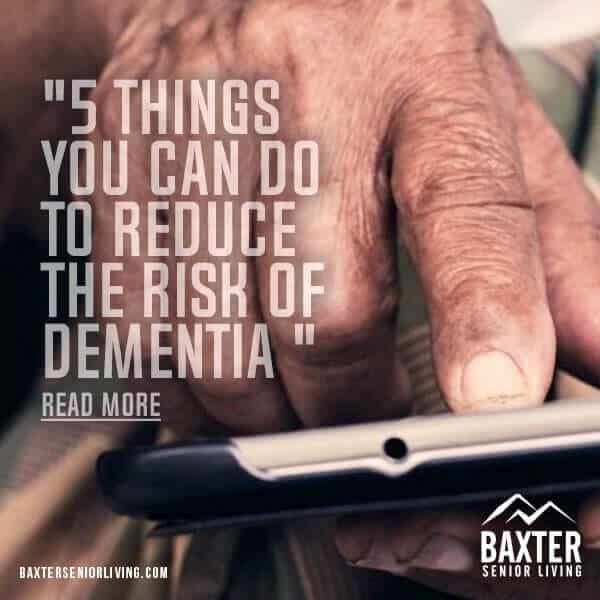Dementia affects millions of people all around the world, with over 15 percent of all men and women over the age of 80 experiencing some degree of dementia. Rates of dementia in the elderly are continuing to rise, but research has identified several preventable risk factors associated with the condition, including smoking, regular alcohol intake and a sedentary lifestyle. Studies have also found that there are several things you can do to reduce the risk of dementia.
Keep Learning
One study found that dementia is more common in people who don’t finish secondary education, while other research suggests that people who continue to learn new information and skills throughout their lives have a reduced risk of developing the condition. Learning a new language, building on existing skills, or taking a class in an unfamiliar subject can help to keep your brain healthy.
Stay Social
Social isolation was found to be another risk factor for dementia, particularly when combined with other mental health problems, such as depression and chronic anxiety. Having an active social life has been shown to help prevent many problems associated with elderly people, including dementia. Going out with friends, spending time with family members, and being part of the local community have all been shown to produce many health benefits.
Take Exercise
The benefits of regular physical activity have been well documented. Most people can achieve better physical and mental health, along with a reduced risk of many serious diseases, simply by remaining active and taking regular exercise. Higher activity levels in older people can also reduce the amount of medication needed to treat common health conditions, such as high blood pressure, high cholesterol levels, and arthritis.
Control Blood Pressure
Research has found that uncontrolled high blood pressure increases the risk of developing dementia in later life, particularly when combined with smoking and regular alcohol intake. Making lifestyle changes or taking medication to lower your blood pressure helps to reduce these risks. Identify potential problems early by having regular blood pressure checks with a health care professional or using a personal monitoring device at home.
Seek Help
Depression, anxiety, and other mental health problems have also been linked to an increased risk of developing dementia. Dealing with mental health problems effectively is the key to reducing these risks, so it’s important to seek counseling, psychotherapy, or other professional help if you are struggling to cope. Seeking help is often the turning point that enables people to make meaningful changes to improve their mental and physical health.
Dementia affects over 15 percent of people over the age of 80, with many younger people also being diagnosed with the condition. While genetics and other factors play a part in developing dementia, studies have found that there are several ways to help prevent or delay its onset. Continuing to learn new things, having an active social life, taking regular exercise, controlling your blood pressure, and seeking help with mental health problems can all reduce the risk of dementia.


